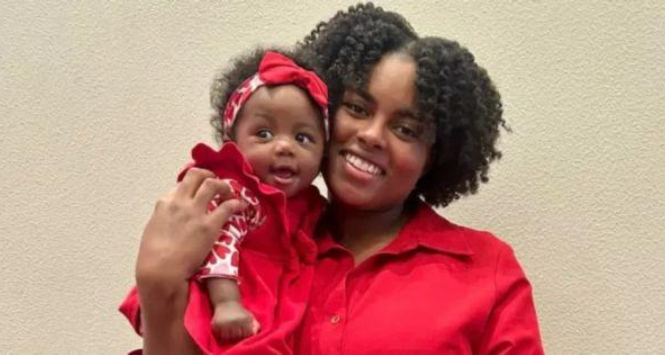A Black mother at the center of what advocates are calling a case of “medical kidnapping” has regained custody of her baby girl but continues to face a felony charge related to the child’s injuries.
The new twist in the case has sparked outrage and renewed scrutiny of how Child Protective Services (CPS) and law enforcement handle allegations of abuse among marginalized families.
Alandria Seabron and her husband Quentin were reunited with their daughter, Jirah, earlier this year after a judge ruled in March that the child should be returned to the couple. The baby had been removed from their Dallas home in November 2023 after doctors at Children’s Health discovered unexplained bone fractures, including a broken arm and 16 internal fractures, and reported suspected child abuse to CPS.
The Seabrons, however, have consistently maintained that their daughter’s injuries were the result of a medical condition—rickets, a disease linked to vitamin D deficiency that weakens bones.

Rickets is more commonly found in children with darker skin and those who are breastfed without supplementation. The couple said they had followed medical advice to modify breastfeeding due to milk overproduction and were concerned when Jirah showed difficulty feeding and wasn’t gaining weight.
Despite these concerns, and early lab results that reportedly indicated signs of bone health issues, the infant was placed in foster care for several months. While CPS has not commented publicly due to confidentiality laws, a grand jury later indicted Alandria Seabron on a charge of injury to a child. According to police reports, she is accused of aggressively pulling and twisting Jirah’s arm—a claim the Seabrons and their supporters deny.
“She was arrested, even after being cleared by a family court judge and regaining custody of her child,” said the couple’s attorney, who described the ordeal as “nothing short of medical kidnapping.” The lawyer also argued that if the Seabrons had been able to afford private expert witnesses earlier in the case, the state may never have removed the child at all.
Critics have pointed to racial and socioeconomic bias in both the healthcare and child welfare systems, arguing that Black families are disproportionately targeted for removal based on misdiagnosed injuries and outdated assumptions.
They also note that children of color are more likely to suffer from conditions like rickets but less likely to receive adequate testing and advocacy.
For now, Alandria Seabron remains focused on her daughter’s recovery while preparing for an upcoming court date. “It’s not just traumatizing to us. It put her through a lot as well,” she said of the experience.
The Tarrant County District Attorney’s Office declined to comment on the case.
If convicted, Alandria could face years in prison, despite the family court’s earlier decision that allowed her to bring her daughter home.
